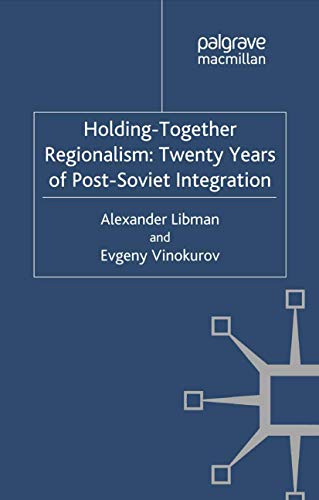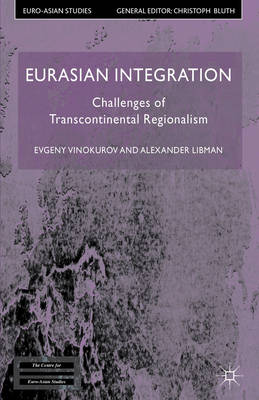Euro-Asian Studies
3 total works
Holding-Together Regionalism: Twenty Years of Post-Soviet Integration
by Alexander Libman and E. Vinokurov
Published 1 January 2012
An in-depth analysis of one of the most important and complex issues of the post-Soviet era, namely the (re-)integration of this highly interconnected region. The book considers the evolution of 'holding-together' groups since the collapse of the Soviet Union in 1991, looking at intergovernmental interaction and informal economic and social ties.
This book examines the major economic and political transitions currently taking place in the Eurasian continent. Libman and Vinokurov provide a detailed account of various aspects of Eurasian integration, looking at both its bright side (trade, investments and joint infrastructure) and dark side (trafficking humans and drugs and the spread of diseases) and linking it to waves of 'Eurasian exchanges' in the past. The authors explore how political reality adapts and shapes the changing networks of economic interconnections and delineate a concept of 'pragmatic Eurasianism' necessary for understanding these linkages and sharply contrasting to the heavily ideological views of Eurasia that often dominate the political and social discussions.
Eurasian Integration: Challenges of Transcontinental Regionalism
by Evgeny Vinokurov and Alexander Libman
Published 1 January 2012


